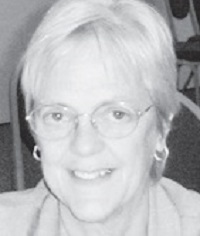China police log for September 2017
 SEPTEMBER 2:
SEPTEMBER 2:
12:05 p.m., report of disorderly conduct, Rte. 3. Complainant advised to speak with landlord.
SEPTEMBER 7:
5:05 p.m., Check of South China boat landing.
5:25 p.m., business check, Vassalboro Rd.
5:45 p.m., business check, Vassalboro Rd.
6 p.m., traffic complaint, Rte. 3, by Palermo. Unable to locate vehicle.
6:30 p.m., check of China Village boat landing.
6:45 p.m., business check, Lakeview Dr.
7 p.m., stationary radar detail. Main St., no violations noted.
8:10 p.m., business check, Windsor Rd.
SEPTEMBER 9:
2:15 p.m., traffic stop, Vassalboro Rd., warning for inspection violation.
2:33 p.m., traffic stop, Vassalboro Rd., warning for speed.
3 p.m., traffic stop, Rte. 3, warning for inadequate tires.
4:10 p.m., business check, Pleasant View Ridge Rd.
4:45 p.m., check of Thurston Park.
5:25 p.m., residence check, Neck Rd.
6 p.m., business check, Rte. 3.
SEPTEMBER 11:
1 p.m., complaint of trespass by motor vehicle, Rte. 3
2 p.m., traffic complaint, Pleasant View Ridge Rd.
SEPTEMBER 16:
noon, traffic complaint, Waterville Rd., passed on to Winslow Police Dept.
12:25 p.m., residence check, Neck Rd.
12:35 p.m., traffic stop, Neck Rd., warning for inspection violation. Summons for no insurance.
1:45 p.m., check of Thurston Park.
2 p.m., stationary radar detail, Pleasant View Ridge Rd.
3:15 p.m., keys locked in vehicle, Killdeer Point Rd.
3:35 p.m., traffic stop, Alder Park Rd., warning for speed.
SEPTEMBER 23:
10:27 a.m., residence alarm, Sunset Lane.
11:10 a.m., check of South China boat launch.
12:10 p.m., check of Thurston Park.
12:50 p.m., traffic stop, Lakeview Dr., warning for speed.
1:10 p.m., business check, Windsor Rd.
1:30 p.m., traffic stop, Windsor Rd., warning for speed.
SEPTEMBER 29:
Excessive acceleration complaint, Alder Park Rd.
SEPTEMBER 30:
12:20 p.m., stationary radar detail, Alder Park Rd.
1 p.m., assist China Fire Dept., near Branch Pond.
5 p.m., assist homeowner with grass fire, Lakeview Dr.




